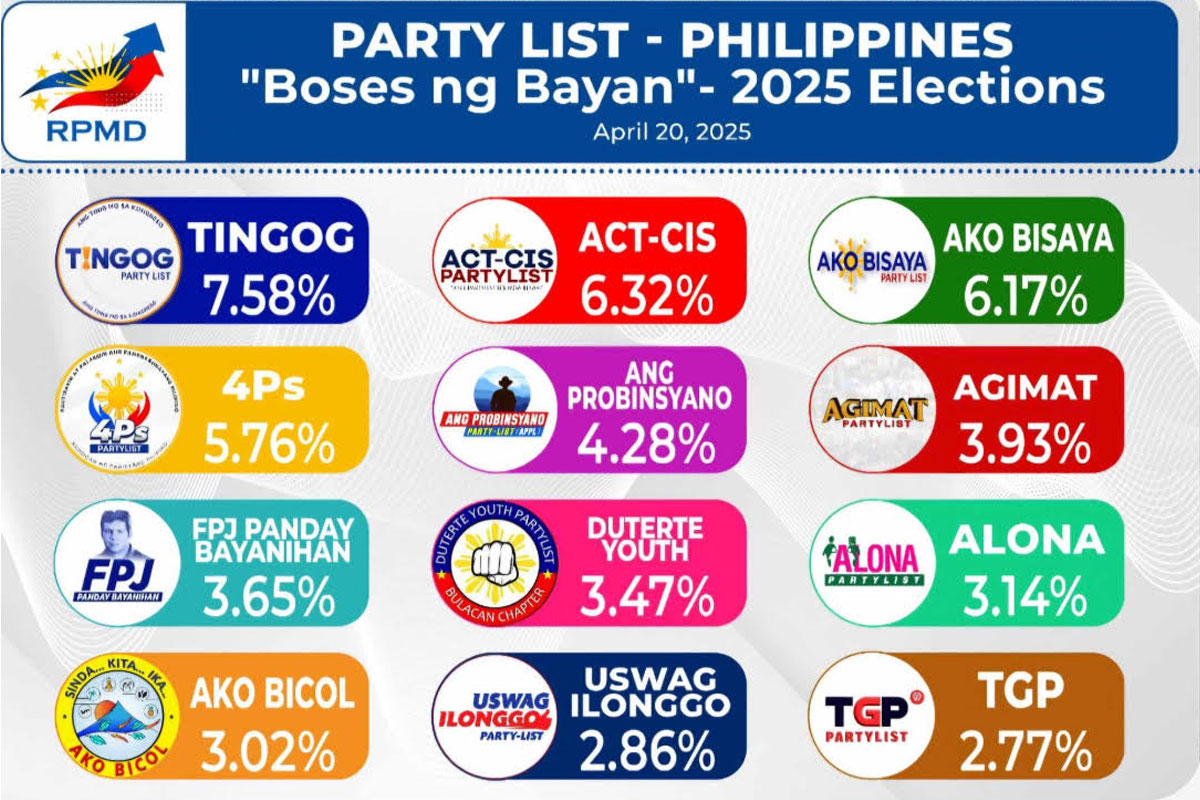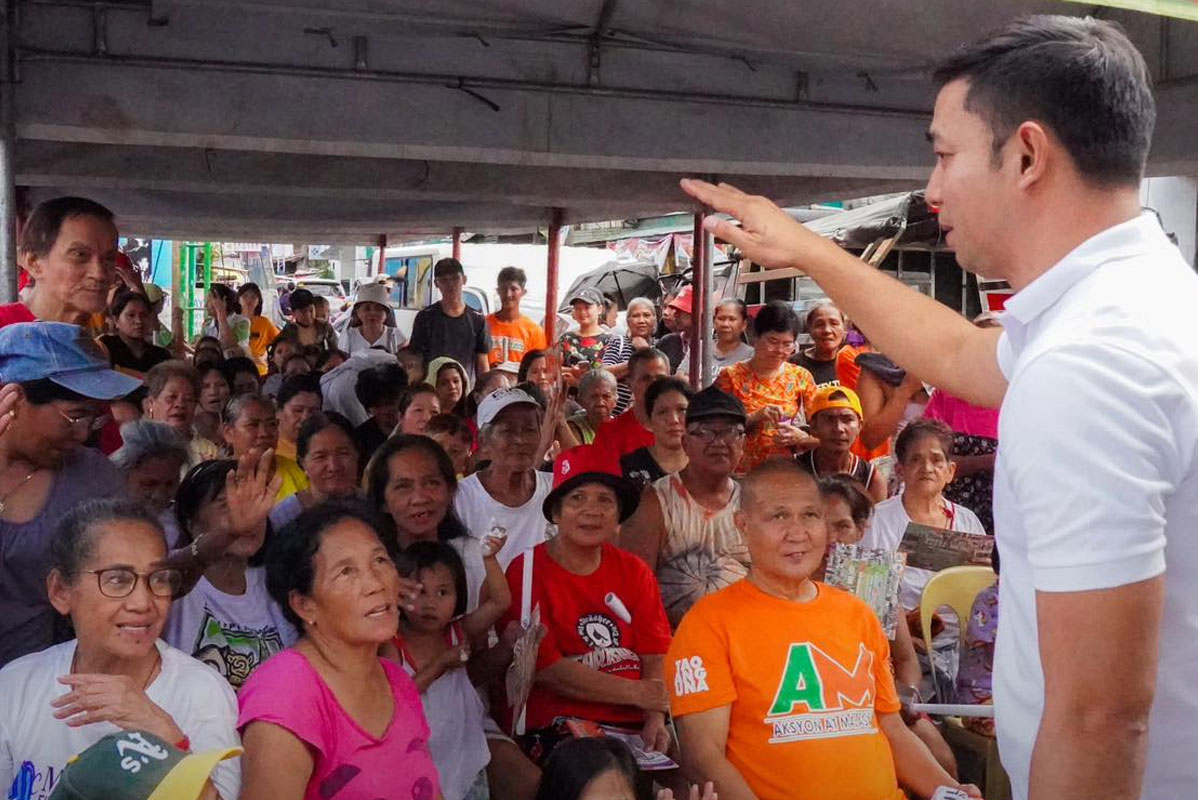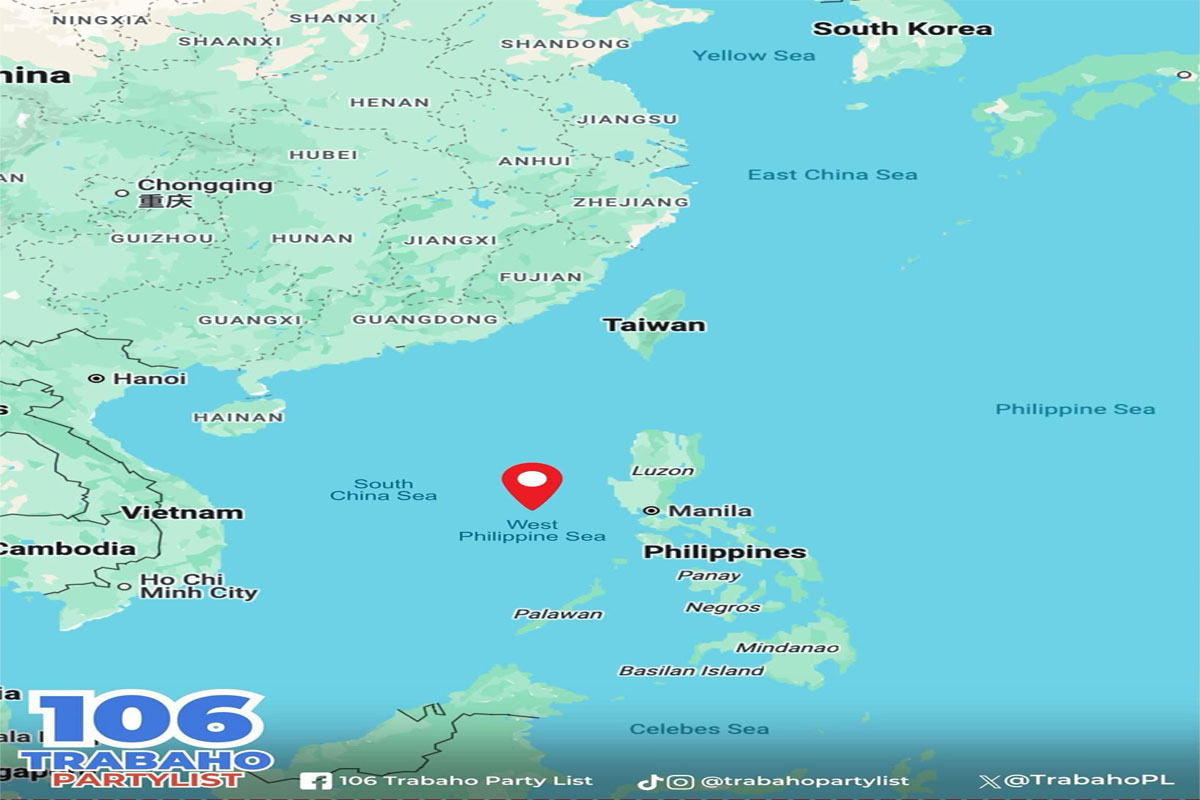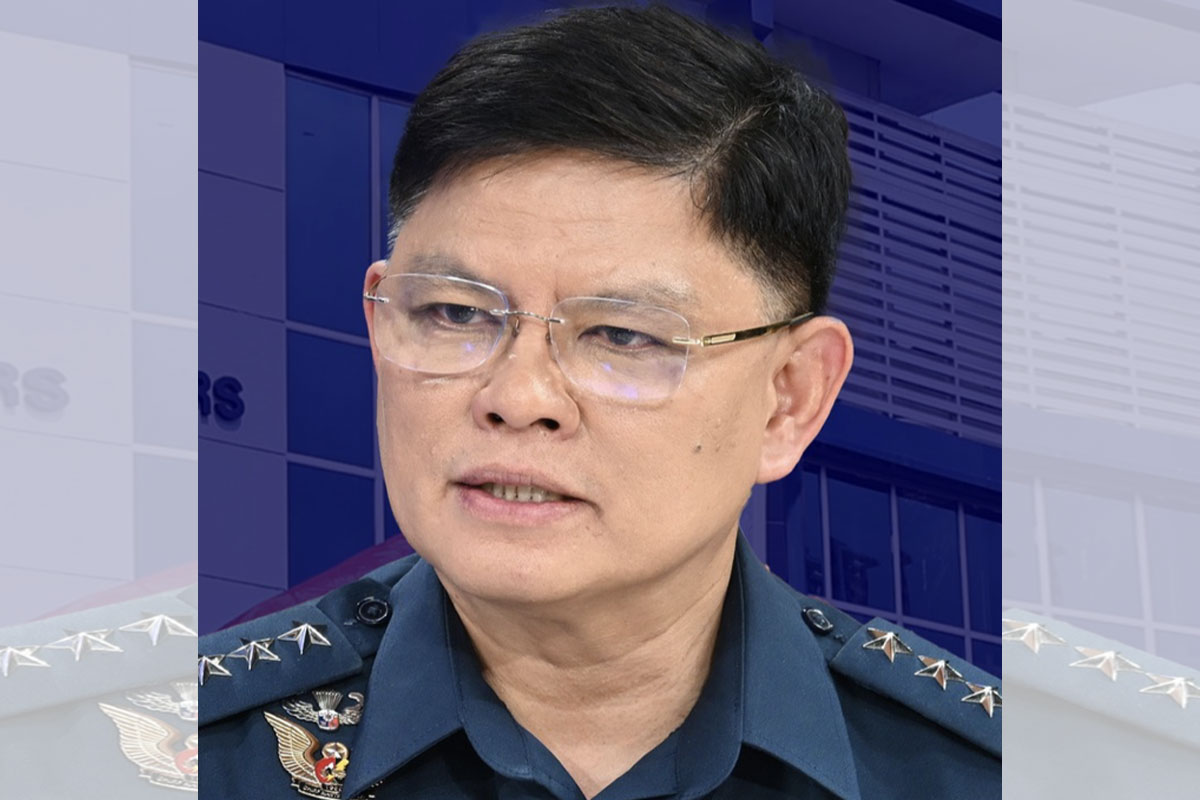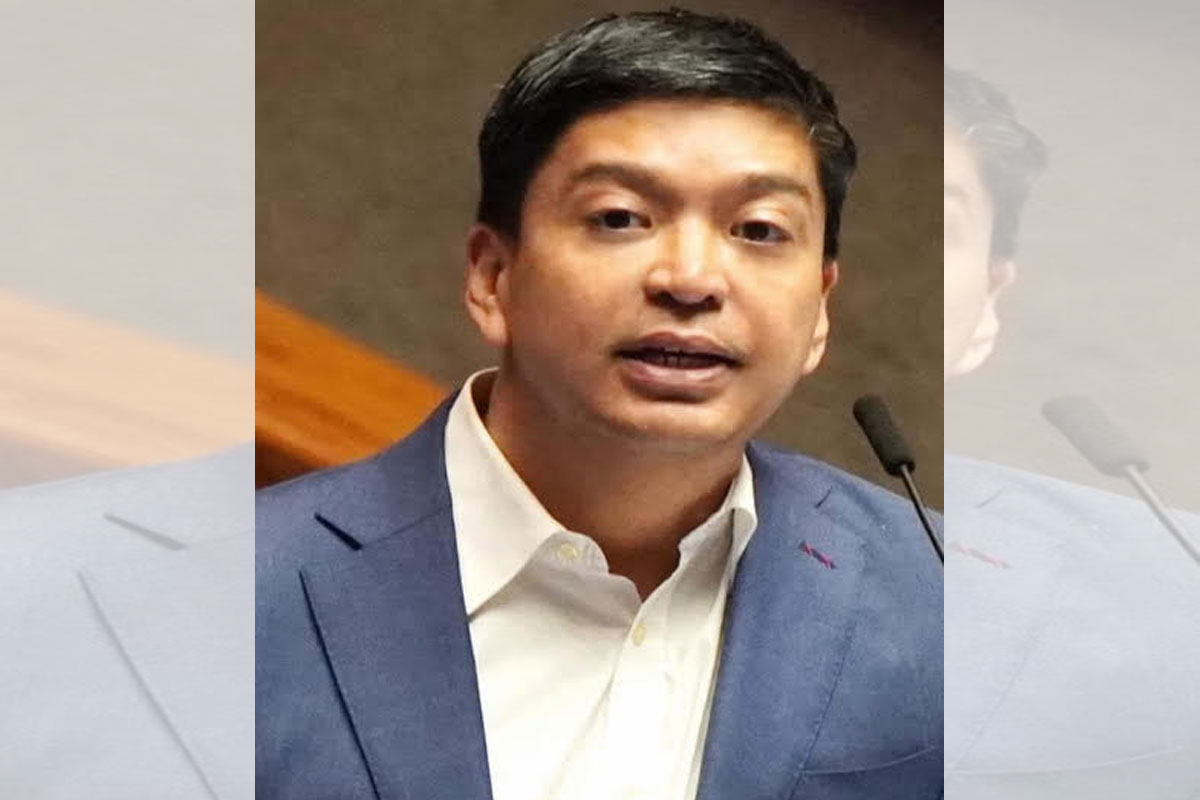
Villafuerte: LGUs to ensure benefits for trikers, safety for passengers under House-passed Magna Carta
LOCAL government units (LGUs) are tasked under a House-approved proposed law to draw up and implement a “rights-based, participatory and gender-responsive” magna carta for tricycle drivers and operators in their respective localities, with the foremost goals of providing social security and healthcare benefits to the members of this transport sector and at the same time ensuring the convenience and safety of the riding public, Camarines Sur Rep. LRay Villafuerte has said.
Under the proposed “Magna Carta of Tricycle Drivers and Operators,” all “LGUs shall play the lead role in bringing members of this sector to the economic and social mainstream by pursuing in their respective areas of jurisdiction a comprehensive framework providing for, among others, affordable social security and healthcare benefits to tricycle drivers and operators,” said Villafuerte, an author of the chamber-passed House Bill (HB) No. 11227.
Approved by the House on third and final reading by a 180-0 vote before the Congress’ break for the May 12 polls, HB 11227 at the same assigns responsibility to tricycle operators and drivers for “promoting and ensuring the convenience, safety and security of the riding public” while upholding environmental protection, Villafuerte, a former CamSur governor, said.
“Although LGUs are envisioned to do the heavy lifting in regulating and promoting this ubiquitous sector under this House-passed Magna Carta,” said Villafuerte, “the DOTr (Department of Transportation), DOST (Department of Science and Technology) and DTI (Department of Trade and Industry) are assigned specific responsibilities over either the provision of transportation routes, eligibility of drivers or roadworthiness of their three-wheeled vehicles to guarantee the overall safety and efficiency of tricycles as a highly accessible and affordable modes of public transport.”
HB 11227 was one of the measures passed by the House before the Feb. 8-June __ break. Both chambers will then reopen on June 2 and hold sessions till June 13 before the sine die adjournment or end of the 19th Congress.
Within 90 days from the release of the implementing rules and regulations (IRR) of this Act, the Social Security System (SSS) and Philippine Health Insurance Corp. (PhilHealth) are directed by the bill to promulgate guidelines for strengthening the mechanisms of providing social security and health insurance coverage to tricycle operators and drivers.
The SSS shall also inform its members from the tricycle sector of the services and loans that the latter can avail of, while the PhilHealth shall coordinate with the tricycle sector organizations, LGUs, Department of Social Welfare and Development (DSWD) and other concerned government agencies to determine the financial capability of the members of the tricycle sector to pay premium contributions and to identify those members who shall be entitled to a subsidy from the national government.
Local governments are, under this proposed Magna Carta, in charge of:
· Putting in place policies and programs to bring members of the tricycle sector to the economic and social mainstream;
· Pursuing structural reforms in all relevant levels of local governments by creating committees, special offices for development and protection of workers in the tricycle sector and supporting representational rights through their organizations;
· Identifying and designating—in consultation with the transport groups, the affected communities, and other stakeholders— viable routes and terminals of tricycle within the city or municipality, with such terminals close to public buildings, public and private markets, commercial districts, and/or establishments and other places frequently visited by the public;
· Undertaking in tandem with the DOST—and in coordination with the DOTr, LTO and public and private stakeholders—tricycle maintenance programs, by providing preventive and periodic maintenance training to the existing tricycle operators and drivers associations (TODAs) within their respective jurisdictions; and
· Preventing—in coordination with law enforcement agencies—the proliferation of colorum or illegal tricycle units.
Subject to the guidelines to be prescribed by the DOTr. Land Transportation Office (LTO) and Land Transportation Franchising and Regulatory Board (LTFRB), Villafuerte said that HB 11227 empowers LGUs to regulate the operation of tricycles and grant permits—Motorized Tricycle Operators Permit or MTOP—for the operation of these vehicles for public transportation purposes within their respective territorial jurisdictions.
Before issuing each MTOP, the concerned LGU is required by HB 11227 to submit for DOTr’s approval a Local Public Transport Route Plan for the permit applicant that covers the tricycle transport routes and zones, alternate tricycle route plans, designated terminals, and the maximum number of tricycles to operate within that particular jurisdiction, he said.
Each MTOP shall be valid for 5 years, renewable for the same period, said Villafuerte, and any change of zone of operation, ownership of tricycle units or transfer of MTOPs shall be deemed an amendment to that MTOP requiring the appropriate approval by the LGU concerned.
Operators must obtain and present personal passenger accident insurance policies and third-party liability insurance policies before the LTO registers their tricycles as “for-hire” or before the registration of MTOPs are renewed during the validity periods of these permits.
Tricycle operators are required by the bill to only employ drivers possessing LTO-issued professional licenses, and the LTO shall issue guidelines, including theoretical and practical examinations, appropriate for drivers of tricycles.
Moreover, the LTO is mandated to ensure the roadworthiness of tricycles before registration or renewal of registration, including compliance with environmental laws.
Given this task, the LTO, in coordination with motorcycle and tricycle manufacturers and the DTI, to formulate safety standards and the allowable designs and modifications, taking into consideration the limitations on passengers and weight or load capacity of the vehicles, he said.
HB 1127 requires every LGU to establish a Tricycle Sector One-Stop Shop to handle all transactions and processing of the business permit applications within their respective jurisdictions, Villafuerte said.
These One-Stop Shops shall ensure that the processing of the MTOPs shall commence on the day of their respective permit applications, and the registration shall be released within 36 hours upon the applicant’s submission of the complete requirements.
Information about these One-Stop Shops for tricycle operators shall be included in the respective Citizen’s Charters of LGUs.
Villafuerte said that LGUs are authorized by the bill to adopt common color-coding schemes for tricycles operating in the same zone, and each tricycle shall be assigned and bear an identifiable body number, aside from its license plate number issued by the LTO.
For safety reasons, he said, the approved bill prohibits tricycles from operating on national highways that are utilized by 4-wheeled vehicles that weight greater than four (4) tons and where normal speed exceeds 40 kilometers per hour (kph).
However, the concerned Sanggunian or legislative council may issue an ordinance, subject to the DOTr’s prior approval, providing exceptions to this ban if there are is no public transportation servicing the said route, either along the highway or crossing the same.
Exceptions may also be allowed by the concerned Sanggunian under the bill, subject again to the DOTr’s prior approval, for tricycles to operate on a national highway if there is no other access, but these tricycles must only traverse the outer right lane of the road except when preparing to turn.
The LGU where the Sanggunian has issued an exemption ordinance is mandated under the bill to provide appropriate signages, marks for lanes, and other safety features to guide and protect the tricycles utilizing the highway.
In a related development, Villafuerte is backing the congressional approval of a measure legalizing motorcycle taxis as a safe, efficient and economical mode of public transportation.
This developed as its lead proponent in the Senate—Sen. Grace Poe— expects the approval in the nick of time of that chamber’s version of the House-passed bill allowing the operation of these bikes-for-hire as common carriers for both passengers and goods.
“With Sen. Grace (Poe) bullish on the approval before the next congressional break of the Senate bill legitimizing motorcycle taxis, I remain optimistic about the 19th Congress passing a consolidated bill on bikes-for-hire before it ends its third and final regular session in June,” said Villafuerte, a lead author of HB 10424 that the bigger chamber passed in July 2024 yet.
He said that, “As soon as the Senate gives its go-ahead to its version of this measure, as expected by Sen. Grace, then all that it will take for a law to happen is for both chambers to come up with a reconciled bill via the bicam (bicameral conference committee) process, and then ratify it prior to submission to Malacañan Palace for the President’s approval.”
The CamSur congressman said the House-passed HB 10424 tasks the LTO to take charge of the registration and renewal of registration of all motorcycle taxis after first ensuring the road worthiness of these bikes.
It tasks the LTFRB, meanwhile, to regulate the operation of motorcycles-for-hire operating in areas where there are no operating digital platforms; and empowers the LTO to deputize LGUs and relevant government agencies to assist in enforcing traffic rules covering motorcycles-for-hire.


